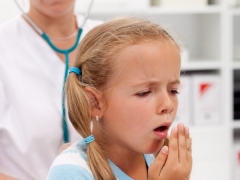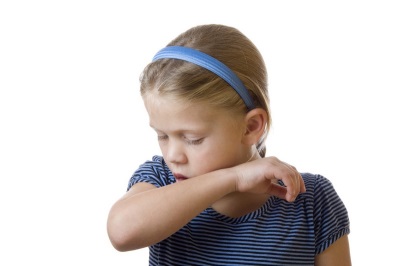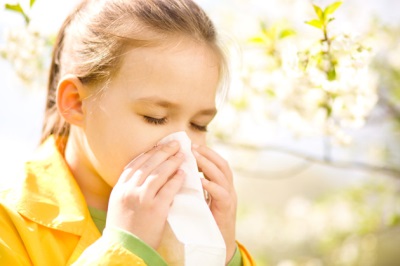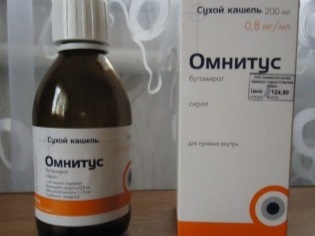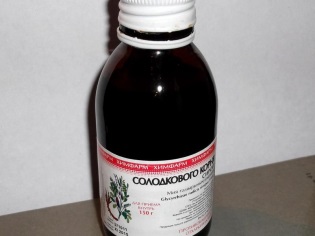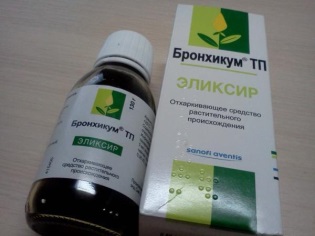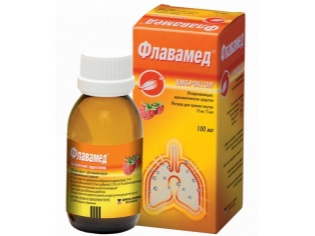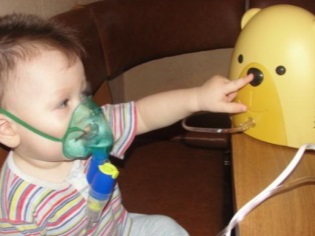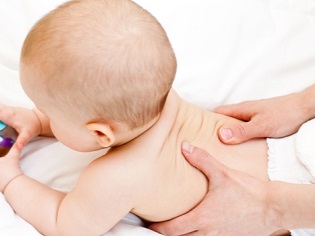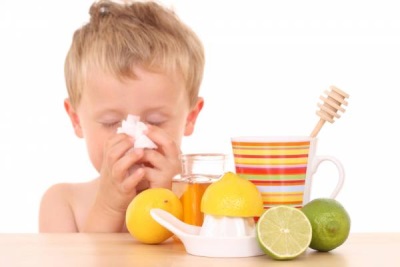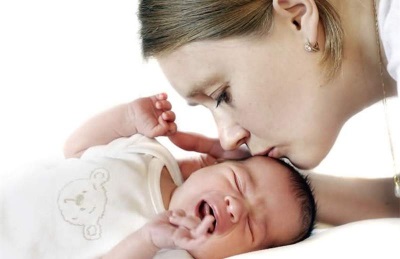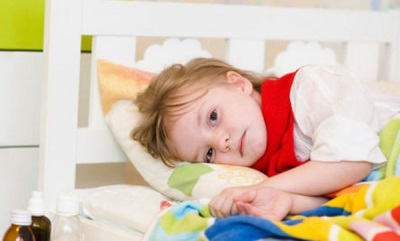How to treat a cough without a child's temperature?
The appearance of cough in a child causes anxiety in many parents, but this symptom does not always indicate a disease, especially if there is no fever or other signs of illness. However, there are diseases that manifest themselves with a long cough, so parents should know which diseases can cause coughing and how to treat it properly.
When is coughing the norm?
Coughing protects the respiratory system from all harmful and excess substances that can get into the lungs.
Such a reflex frees the mucosa from viruses, allergens, dust, bacteria and various harmful compounds. That is why a periodic cough up to 10-15 times a day is normal. And if the parents do not notice any other negative symptoms, they don’t need to run to a doctor or buy cough medicine.
In infancy, a cough can serve as a protective reaction from getting into the airways of tears or milk (a newborn can cry or choke on milk, and the cough acts as a protective reflex). If a baby has teeth, an excess of saliva can also get into the respiratory tract and provoke coughing.
The cause of frequent cough in children, which is easy for parents to remove, is excessively dry indoor air. The sudden onset of a coughing attack is associated with a foreign body entering the respiratory tract, for example, if crumbs hit the child’s trachea while eating.
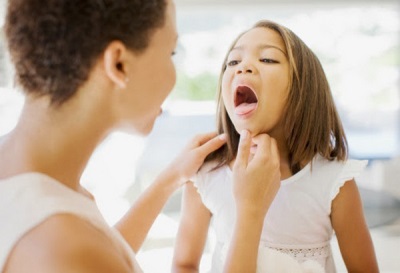
Causes: cough as a symptom of the disease
- Allergy. The child may react with a cough to household dust, various food products, household chemicals, plant pollen, down pillows, and other allergens.
- Bronchial asthma. The disease is manifested by paroxysmal cough, which often occurs at night.
- Infectious lesion of the bronchi or upper respiratory tract. If the causative agent is a fungus, cytomegalovirus or chlamydia, the temperature rise may be absent. Also, bouts of coughing without fever may manifest. paracoclusum or tuberculosis.
- Residual cough after previous respiratory diseases, for example, after acute bronchitis. The baby may cough for a few more weeks after the end of the acute phase of the disease.
Cough and runny nose
The appearance of cough and runny nose without fever often indicates an exacerbation of chronic rhinitis, for example, after hypothermia. In the case of such rhinitis, snot flowing through the back of the throat causes a wet cough. In such a situation, it is important to direct the treatment to eliminate the head cold, for example, to flush the nose with Aquamaris and to bury the drugs that narrow the vessels.
How to treat?
Treatment of cough without fever should be complex and directed at the cause of the disease, since cough is only one of the symptoms. Children undergo various procedures, are treated with folk remedies, as well as medicines prescribed by a pediatrician. Consider all the methods of treatment in more detail.
Medicines
Among the medications prescribed by the doctor when coughing without increased body temperature, there are such groups of drugs:
- Antitussive. Drugs of this group affect the cough center in the child's brain, so their purpose is justified with a painful dry cough. Children can be prescribed Sinekod, Paksedalin, Omnitus, Libexin, Codelac.
- Antihistamines. These drugs are prescribed for children with an allergic cough without fever. These include Fenistil, Erius, Tsetrin, Zodak, ZyrtecSuprastin.
- Expectorants. They are prescribed for sputum to improve its separation. The most popular in childhood age in the form of syrups, for example, Gedelix, Althea syrup, Bronhikum, Licorice Root SyrupDr. Theiss, Prospan, Herbion other.
- Mucolytics. Such drugs affect the viscous sputum, as a result of which it becomes more liquid, and its coughing is facilitated. These include Ambrobene, Bromhexine, Flamed, Bronchipret, ACC, Fluditec and other medicines.
- Antibiotics. Drugs of this group are indicated in the case of a bacterial infection, which can manifest itself only by coughing without raising the temperature. Selection of the desired drug and its dosage is carried out by a pediatrician.
Procedures
- With a dry cough with a normal body temperature, steam inhalations can be performed. During such procedures, the child breathes over a pan of boiling liquid, for example, herbal decoction, or through a steam inhaler.
- Coughing of any kind will help inhalation with a nebulizer. So called a special device that can turn liquid medicines into small particles and deliver them to the respiratory tract. Without consultation with the doctor you can pour saline or borjomi into the nebulizer. If the procedure is prescribed by a pediatrician, nebulizing inhalations can be performed with Lasolvan, Rotokan, Tussamag, Miramistin, Furatsilinom and other medicines.
- When coughing against the background of normal body temperature, warming procedures are allowed, for example, rubbing baby's feet with warming ointments or warm foot baths.
- If the cough is wet, a special massage, called a drainage massage, will help to improve sputum production. Its feature is the position of the child’s body — while the mother is massaging the back and chest, the baby’s head should be below the body.
Folk remedies
Children with a protracted cough are recommended to give:
Features of the treatment of infants
If the mother suspected that a cough in an infant can be a symptom of some kind of illness (it does not go away for a long time and bothers the baby), the baby should be shown to the pediatrician.
No medicines for coughing can be given to babies without consulting a doctor. A pediatrician may prescribe such medications that are permitted before the age of one year, such as Prospan, Gedelix, Herbion ivy, Linkus, Licorice Root Syrup other.
What does a frequent long-term cough without a child's temperature indicate?
A persistent cough without other symptoms of disease for several weeks should be a reason for additional examination of the child.
The most likely causes of this cough are an allergic reaction or too dry air in the room, so you need to take care of humidifying the air and go with your child to an allergist.In addition, a protracted cough is caused by psychological factors, which requires an appeal to a psychologist.
Opinion Komarovsky
A popular pediatrician calls cough an important protective symptom that helps eliminate excess mucus, bacteria, foreign objects or viruses from the respiratory tract. In the treatment of cough Komarovsky advises to focus on the dilution of sputum by humidifying the air and drinking plenty of water.
The well-known doctor claims that airing, frequent wet cleaning, warm drinking in large quantities and humidifying the air help to cope with coughing along with expectorant drugs. Komarovsky recommends giving any medications only after consulting a doctor, since treatment should be directed at the cause of the cough, and not at eliminating the symptom itself.
A few tips from the doctor in the video below.
Tips
- Food for a child with a cough needs to be adjusted so that the baby does not eat either too cold food or very hot food. Prepare nutritious but light meals for your child. Focus on a larger volume of drinking, giving compote, tea, milk, decoction of herbs, juice and other liquids to a daughter or son.
- Frequently ventilate the room in which the baby is located, and also moisten the air in it (preferably using a humidifier, but you can also use a damp cloth or containers filled with water). Cough should not be an obstacle for walks, because the fresh air helps to ease it and heal faster.
- If the child suddenly has a fever, nausea and vomiting, the skin has become a bluish tinge, the child has difficulty breathing or swallowing, and also there are any other warning signs, do not hesitate to contact the doctor. You can not postpone the visit to the pediatrician, if the cough is wheezing or hoarse.
